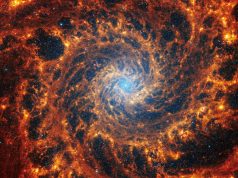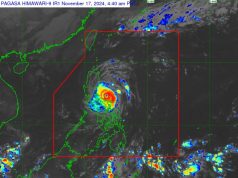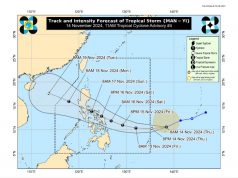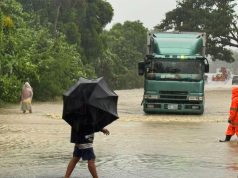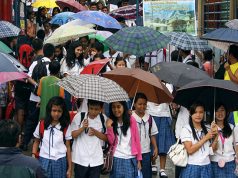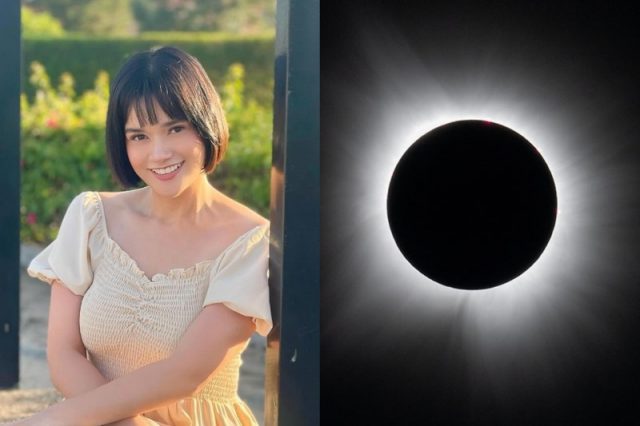
Actress Yasmien Kurdi shared that she was one of those who believed in the so-called “curse” of the total solar eclipse earlier this week.
A total solar eclipse moved across North America on April 8 (US time). It passed over the countries of Mexico, United States and Canada.
The celestial event, however, was not visible in the Philippines.
The Philippine Atmospheric, Geophysical and Astronomical Services Administration (PAGASA) said it was only visible in a narrow strip on the Pacific Ocean, in North America and the Atlantic Ocean.
A total solar eclipse occurs when the moon passes between the sun and the earth, completely blocking the sun’s rays from reaching the earth.
This will make the sky go dark, as if it was dawn or dusk.
The sun’s corona or outer atmosphere will be the only one visible in the event.
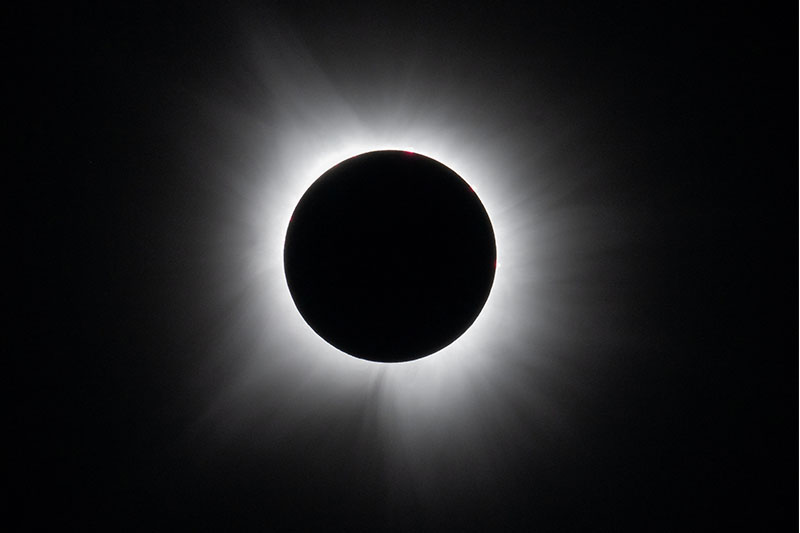
The phenomenon also requires the sun, moon and earth to be in precise alignment for it to occur.
The United States last experienced a total solar eclipse in 1997 or 27 years ago.
Reports said that the recent cosmic event last Monday brought darkness to large areas of Texas, including the cities of Austin and Dallas. The path of totality also included the east coast of the United States.
READ: Texas woman who measures her life in eclipses about to see her 21st
While the solar eclipse was not visible in the Philippines, it also caused a buzz among some Pinoys like Yasmien.
She shared that she “followed” some people’s so-called advice or practice to refrain from going out during the phenomenon.
“Nagpa-install pa nga ako ng mga curtina para walang pumasok na aninag ng araw sa loob ng bahay namin… hindi din ako dumungaw sa bintana,” the actress said on Facebook on April 9.
“Anyways, madaling araw pala ang eclipse sa Pinas, ginutom ako ng 1:07 a.m… nag-order ako ng grocery ta’s lumabas ako ng bahay para kunin ‘yung pinamili ko… nakalimutan ko na eclipse [pa rin] pala! OMG! Kasi April 9 [na]… sabi niyo, April 8,” Yasmien added.
“Kaya naman dali-dali si Pangga… nagulat ako kung bakit siya tumatakbo… bigla akong hinagisan ng bulaklak sa likod, hahahahaha. Naligo naman din ako after, so I guess na-save ako ni Pangga sa sumpa ng eclipse. Ayun lang… Ang #KwentongEclipse namin… ” the actress concluded.
Facts
Experts said people can go outside during a solar eclipse, contrary to what some believe.
“It is completely safe to be outside during an eclipse. Sunlight is no more dangerous during an eclipse than normally, and what we really don’t want people to do is stare at the surface of the sun without proper protection,” Holcomb Observatory director Brian Murphy said to WRTV before.
He added that there is also no truth to the belief that it is not safe to look at the sun during the totality phase.
“There have been some stories out there saying you can’t even look at the sun during totality,” he said.
“That is actually one of the untruths out there because that’s the magic of this event. Even though you need the protective eyewear for the partial portion of the eclipse, during totality, that’s the special time you can look directly at the full or totally eclipsed sun because the sun is totally covered by the moon,” Murphy added.
The National Aeronautics and Space Administration also said that it is a myth that eclipses are harbingers of bad things to come.
“A classic case of what psychologists call Confirmation Bias is that we tend to remember all the occasions when two things happened together, but forget all of the other times when they did not,” the space agency explained.
“This gives us a biased view of causes and effects that we remember easily, because the human brain is predisposed to looking for, and remembering, patterns that can be used as survival rules-of-thumb,” NASA added.




